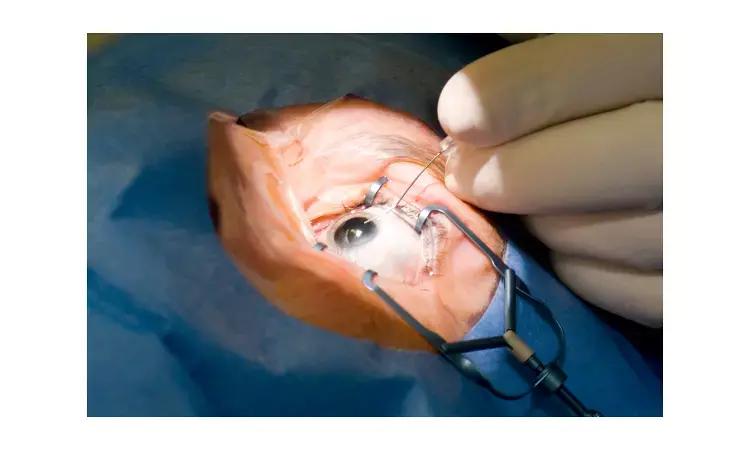Ophthalmologic Procedures In Outpatient Setting Not Associated With Risk Of MI
- byDoctor News Daily Team
- 19 July, 2025
- 0 Comments
- 0 Mins

Preoperative cardiovascular evaluations are frequently done before ambulatory ophthalmologic procedures. However, whether these procedures can trigger an acute myocardial infarction (AMI) is unknown.
Dr Abhijit Sen, PhD and team has reported in a population-based nationwide study from Norway and Sweden that the ambulatory ophthalmologic procedures do not pose any threat during or after procedures and they don't cause acute myocardial infarction.
The findings of the study are published in Annals of Internal Medicine.
The researchers conducted study to assess the short-term risk for AMI associated with ophthalmologic procedures. They ncluded First-time patients with AMI, aged 40 years and older, identified via inpatient registries and linked to outpatient surgical procedures in Norway (2008 to 2014) and Sweden (2001 to 2014), respectively. Using self-matching, for each participant, exposure to ophthalmologic procedures in the 0 to 7 days before AMI diagnosis (hazard period) was compared with an 8-day period 30 days earlier, that is, days 29 to 36 before AMI (control period) to estimate the relative risk for an AMI the week after an ophthalmologic procedure. The odds ratios (ORs) with 95% CIs were calculated, using conditional logistic regression. Only patients who had a procedure of interest during either the hazard or control period were included.
The results of the study were
• Out of 806 patients with AMI included in this study, there was a lower likelihood of AMI in the week after an ophthalmologic procedure than during the control week (OR, 0.83; 95% CI, 0.75 to 0.91).
• Furthermore, there was no evidence of increased risk for AMI when analyses were stratified by surgery subtype, anesthesia (local or general), duration, invasiveness (low, intermediate, or high), patient's age (<65 years or ≥65 years), or comorbidity (none vs. any).
Dr Sen, and team concluded that Ophthalmologic procedures done in an outpatient setting did not seem to be associated with an increased risk for AMI.
Reference: https://doi.org/10.7326/M20-6618
Disclaimer: This website is designed for healthcare professionals and serves solely for informational purposes.
The content provided should not be interpreted as medical advice, diagnosis, treatment recommendations, prescriptions, or endorsements of specific medical practices. It is not a replacement for professional medical consultation or the expertise of a licensed healthcare provider.
Given the ever-evolving nature of medical science, we strive to keep our information accurate and up to date. However, we do not guarantee the completeness or accuracy of the content.
If you come across any inconsistencies, please reach out to us at
admin@doctornewsdaily.com.
We do not support or endorse medical opinions, treatments, or recommendations that contradict the advice of qualified healthcare professionals.
By using this website, you agree to our
Terms of Use,
Privacy Policy, and
Advertisement Policy.
For further details, please review our
Full Disclaimer.
Recent News
Sleeping with Low Pillow Height May Increase Risk...
- 05 November, 2025
Novel Blood Test May Offer definitive diagnosis fo...
- 05 November, 2025
Esmolol Outperforms Landiolol in Reducing Mortalit...
- 05 November, 2025
Daily Newsletter
Get all the top stories from Blogs to keep track.


0 Comments
Post a comment
No comments yet. Be the first to comment!